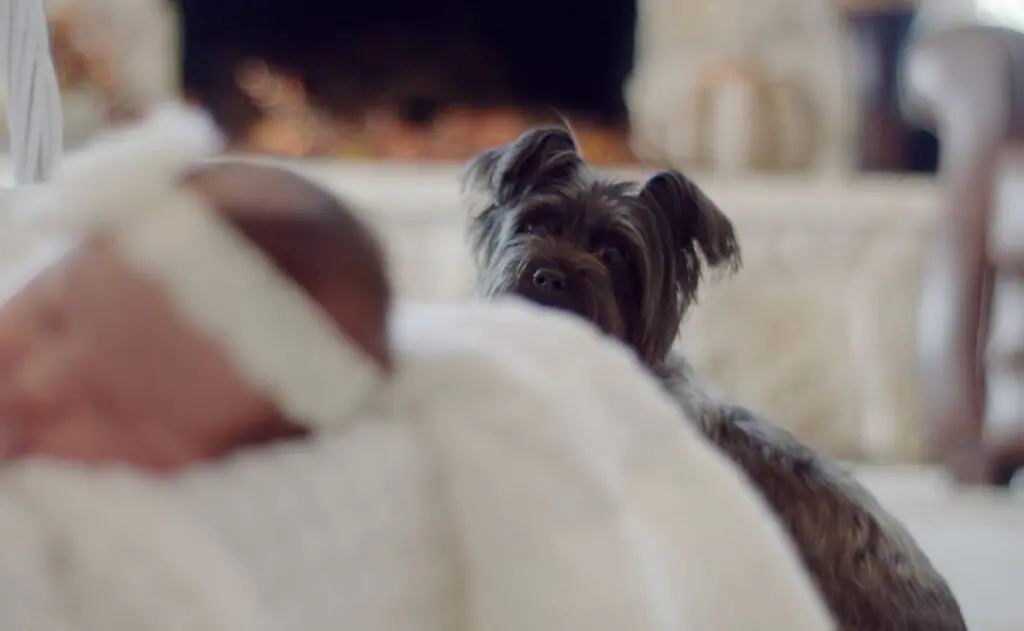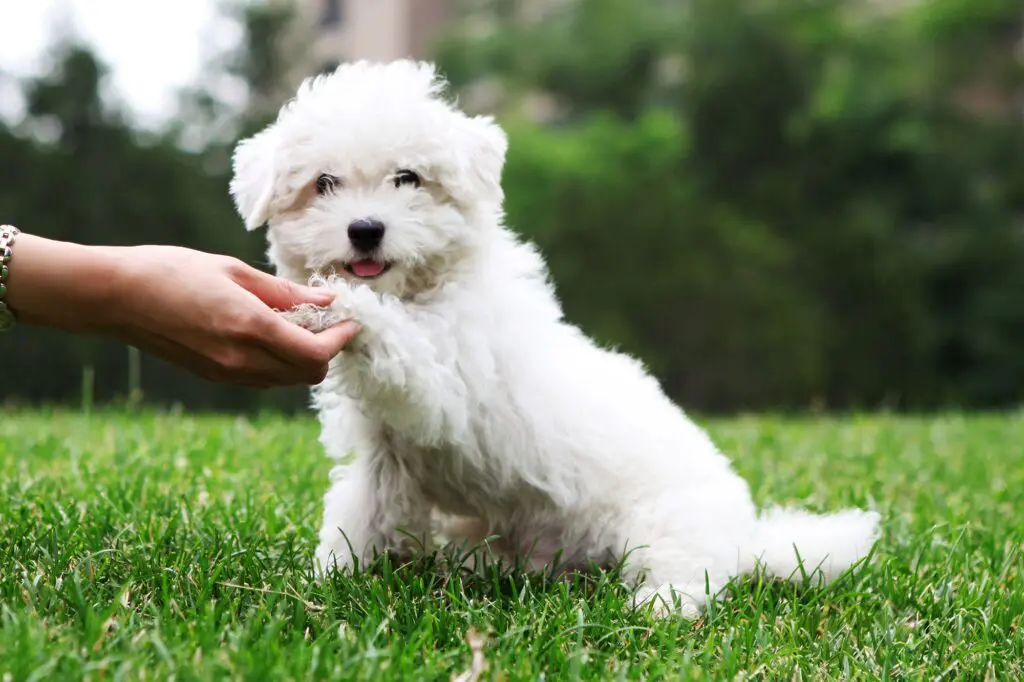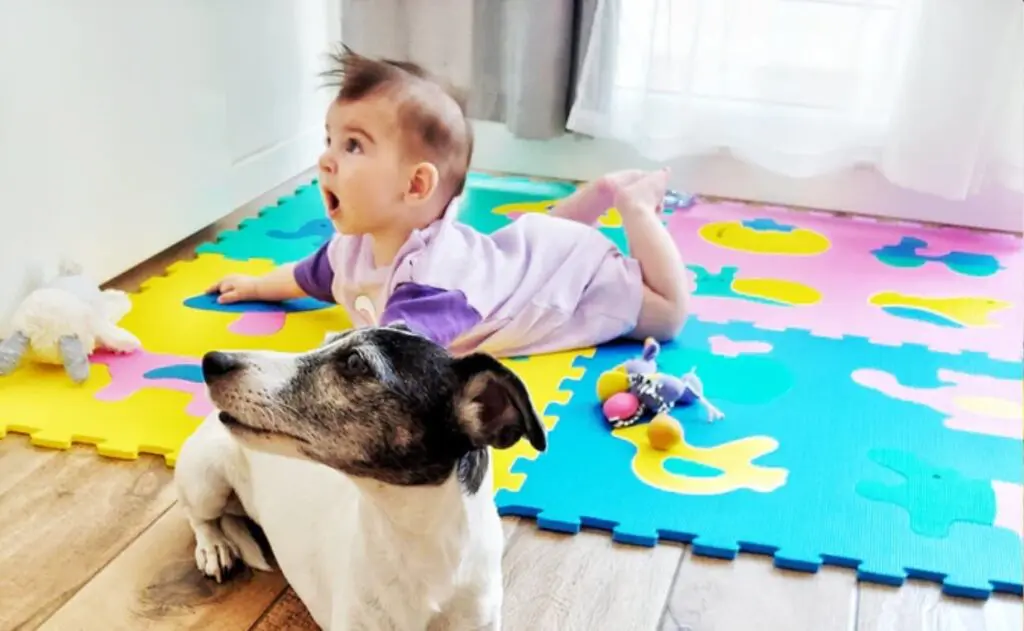
Dog Training & Tips for Bringing Home a New Baby
Dog training can be critical when you are preparing for a new human baby to enter the family. One of the greatest joys in a family’s life is bringing home a new baby, but for your dog or puppy, it can be a tough adjustment, so let’s not forget our furry family members. New parents can find themselves caught between their dog – often their “first baby” – and their human baby. It’s never too early to begin planning and taking proactive measures for the entire family.
Here are six tips for keeping everyone safe and happy during the early days of bringing home a new baby:
1. Planning Ahead for Dog and Baby to Meet
Your family can begin to prepare before the baby arrives:
-
- Be sure your dog’s vaccines are up-to-date, including deworming (if needed) and a negative stool test; certain parasites can be dangerous to humans
- Trim your dog’s nails before the baby comes home
- Address behavioral issues such as jumping or barking and sign up for dog training well in advance of babies arrival
- Learn to recognize the signs your dog is uncomfortable. Dogs might freeze, look stiff, look away, or other behaviors which indicate the dog is uncomfortable. This video offers an excellent guide to learning some of these cues.
- Prepare your home and start teaching your dog any off-limit areas
- Let your dog see and even lick some of the new items such as the stroller, crib, and other pieces of equipment
- Bark Avenue offers a specialized dog training private lesson called Dogs & Diapers, helping prepare your family before or after the arrival of the newest family member and to safely manage interactions
- We also offer dog boarding so new parents can drop their dog off quickly when they need to head to the hospital. We would encourage a family member to swing by with one of the baby blankets after the baby is born. The blanket would be placed with the dog’s bedding so your dog can get used to the smell of the baby before meeting their new family member.
2. Planning the First Meeting
Let your dog greet the new mother before the baby. Introducing the baby and dog in a neutral area is best, such as outside. Most importantly, be sure your dog is on a leash and the baby is safe in someone’s arms. Remember to take it easy and slow as this is new to all two-legged and four-legged family members.

3. Always Supervise
No matter how much you love and trust your dog, even if they’ve been around older children, don’t leave your baby alone with your dog. Dogs especially like to cuddle and may inadvertently cover a baby’s face.
Parents should also discourage dogs from licking babies. Dogs have a lot of bacteria in their mouths, and you don’t want them introduced into immune systems not fully developed yet.
4. Make Time For Your Dog
New parents are going to be exhausted, but it’s really important to take time with your dog! Even if it’s only five minutes of your undivided attention. A dog who is ignored may become resentful and take out their frustrations in unwanted behavior.

5. Crate, Gate & Rotate
Your dog’s crate should be a place of comfort for them, and it will become your best friend. Try giving your dog a special treat that they only get when they are in their crate. Your dog’s crate needs to be his sanctuary, and as your baby starts to grow and crawl, keep in mind that the dog’s crate should be off-limits to kids. Or, if your dog doesn’t like crates, you can use a baby gate to separate the dog and baby to establish those boundaries. Your dog can still interact with the family through a wire crate or gate.
Then, switch it up. Put the baby in a pack-and-play and spend quality time with your dog. Both baby and dog get the attention they need (and deserve). If you’re distracted, be sure to separate the two. Remember you can spend time with both your dog and your baby.

6. Building Friendship
It may take some time for your dog and baby to form a strong bond. Teach your dog to respect your baby and teach your growing baby to respect your dog. For example, as soon as they are old enough start teaching your child to not pull your dog’s tail, not follow him or her into the crate or ride them like a pony.
There’s plenty of advice out there about how to introduce your dog to your baby, but what really works is preparation, proper dog training, and treats – lots of treats!
If you live in Bartlett, Hoffman Estates, St. Charles, Elgin, or Schaumburg and are bringing home a new baby or need help with acclimating a new pup to their new family, contact Bark Avenue Daycamp to schedule dog training with one of our elite dog trainers. Call us at (630) 289-8470 or contact us online.
